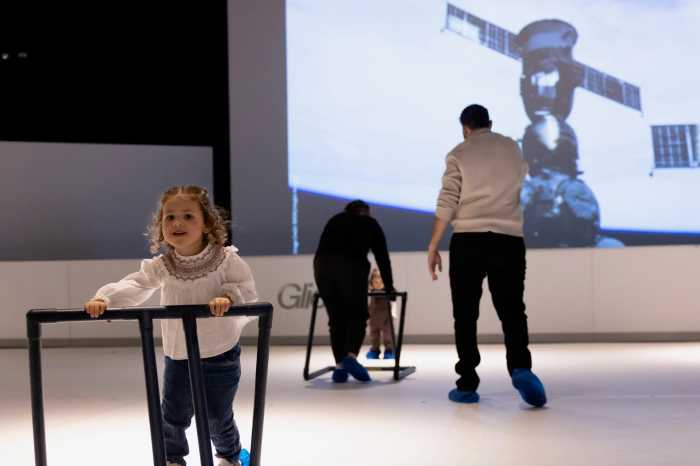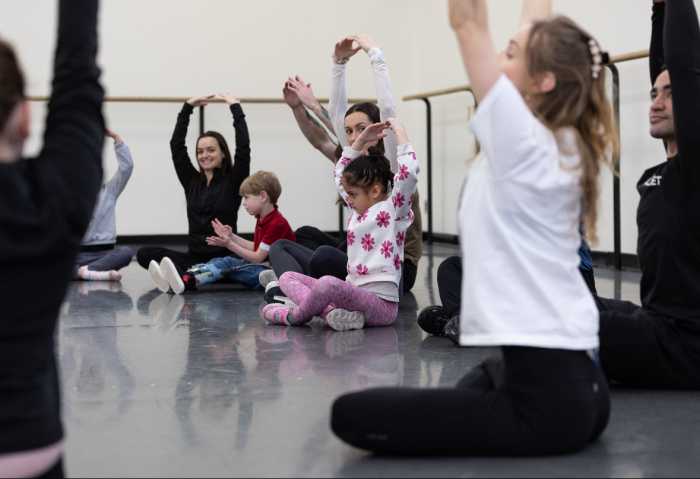 They call it the “worst disease you’ve never heard of.” Epidermolysis Bullosa (EB) is a very rare genetic connective tissue disorder with no permanent treatment or cure; about 200 children are born each year with EB (because of their skin’s fragility, they are often called “Butterfly Children”). In short—it’s a disease that many of us know little about, but that has a devastating effect on the families it touches. Editor’s Note: Scroll all the way down for a video to learn more.
They call it the “worst disease you’ve never heard of.” Epidermolysis Bullosa (EB) is a very rare genetic connective tissue disorder with no permanent treatment or cure; about 200 children are born each year with EB (because of their skin’s fragility, they are often called “Butterfly Children”). In short—it’s a disease that many of us know little about, but that has a devastating effect on the families it touches. Editor’s Note: Scroll all the way down for a video to learn more.
The mission of the Dystrophic Epidermolysis Bullosa Research Association of America (debra of America) is to “support the EB Community, through funding research for a cure and treatments while simultaneously providing free programs and services for those affected.” It’s a worthy cause with many ties to NYC. In fact, their executive director, Brett Kopelan is a New York City dad himself—his daughter, Rafi, now age 9, was born with EB in 2007 and the Kopelan family has immersed itself in the cause ever since.
“I was indoctrinated into EB, and rare diseases in general, sort of with a trial by fire. When Rafi was born on the upper west side of Manhattan, she was missing skin on both feet and on the back of one hand,” he recalls. “About six hours later, she started blistering all over and they took her to the NICU. And then it took about seven days before they decided to test for EB, or Epidermolysis Bullosa. Turns out that it was EB. And her type is called recessive dystrophic EB, and that’s where the COL7A1 gene is unable to make collagen 7 which is a primary building block…that allows the skin to bind to itself. It affects pretty much every cell and organ in your body except your lungs and your brain. The entire GI track is affected; the throat will blister and scar. Scarring makes the throat really narrow to the point where you can’t swallow and you have to have surgery. Rafi has surgery every 5-6 months to widen her esophagus…going to the bathroom hurts in the morning; she has to go through these bandage changes that can be really painful. Imagine the last time you had a paper cut and put an alcohol cleanser on it, it hurt. Now imagine that being 70 percent of your body.”
As Kopelan and his wife worked to understand how to care for their new daughter and navigate the unfamiliar territory of rare diseases, they came to debra of America for guidance in their treatment. Soon after connecting with an on-call nurse over treatment procedures and supplies, Kopelan knew he needed to become more involved.
“A few months after Rafi was born I joined the board of debra. I wanted to know every international researcher and I wanted to funnel money to international research projects. EB is pretty crippling to most families and we wanted to help. The wound care supplies can cost more than $25,000 a month and most insurances have a $2,500 annual cap on these expenses. And if there was ever a clinical trial, we wanted Rafi to benefit from it,” he says, noting that Rafi, when she about 2 years old, was the eighth child in the world to have a stem cell transplant in the hopes of curing or treating her EB.
In the years since he first joined the board, Kopelan became debra’s executive director in 2011, and he’s proud to note the progress the non-profit has made in raising money, investing in new treatments, raising awareness, and growing their team (debra now has 12 employees). “We’ve been able to fund more research, provide more programs and services, and to hire a government affairs person, advocate at the federal level, to try to get advantageous legislation passed for rare diseases in general (and certainly for those with EB),” he says.
This past fall, debra hosted their annual benefit in New York City where Kopelan was proud to successfully encourage the guests to donate more than $100,000 in response to an offer by a couple at the event who declared they would match every dollar donated right then up to $100,000. The event was able to hit an overall fundraising goal mark of $500,000 to go towards families in need of wound care supplies and treatment and to go towards funding groundbreaking research. On hand to host for the evening—and to lend his own unique perspective on overcoming physical obstacles—was JR Martinez, actor and winner of season 13 of “Dancing With the Stars,” motivational speaker, father, and Army veteran who was burned on over 34 percent of his body while serving in Iraq 13 years ago. For Martinez, the obstacles that children with EB face mirrored his own recovery process after being wounded in service.
“I originally connected with debra through a company called Mölnlycke, that’s a very big supporter of debra. The reason I got involved with Mölnlycke a year ago is that they came out with these bandages that make it easier for those who need dressing changes to endure the process, in regards to pain,” Martinez explains. “For me, 13 years ago, every time they did a dressing change, the bandages would stick to my skin…and it would be painful and it slows down the recovery process.”
He also added that once he met Rafi and the Kopelan family, the choice to be involved with debra and their benefit was an easy one. “Hearing Rafi and learning about EB I saw there were a lot similarities with what had happened to me in terms of daily life after the fact. That’s what got me inspired. Once you come in contact with Rafi, it doesn’t leave you, it stays with you. That’s what happened at the gala—we were able to hit that $100,000 match goal,” he says. He also stressed that he found debra’s work and message to be so much more about “celebrating how to be part of the solution,” rather than getting “caught up in the sadness of it.”
For both Martinez and Kopelan, the work that they do to support this worthy cause is forever ongoing—and both stress that there are a number of ways that anyone can contribute and lend support.
“We can always use volunteers in the office, people to write letters to EB kids…we need help from anyone who can get on a phone or to write letters, or help strategize. We will embrace anyone who wants to help do that, and certainly anyone who wants to help raise money as well,” Kopelan says. Adding that there’s another big fundraiser for debra that his wife organizes annually in the spring: “My wife and her friends have put together something called Rafi’s Run—it’s a 5K that we do in Riverside Park [in the spring] and that’s a great way to support [debra]. As of today, Rafi’s Run has been able to raise more than $800,000 for the research for a cure and treatment.
Echoing Kopelan’s sentiment that it’s easy for just about anyone to get involved in supporting debra and their good work, Martinez, whose own daughter is 4, encourages self-reflection: “The biggest thing I would share would be the importance of getting involved. There’s something that every one of us can do,” he says. “The key here is for people to spend time thinking about what they can do. There’s something that every single one of us can do—don’t just be moved and inspired, but do something. Be a part of it.”
To learn more about debra of America, visit debra.org.
#ItWontHurtToWatch Full Length Asa from debra of America on Vimeo.













